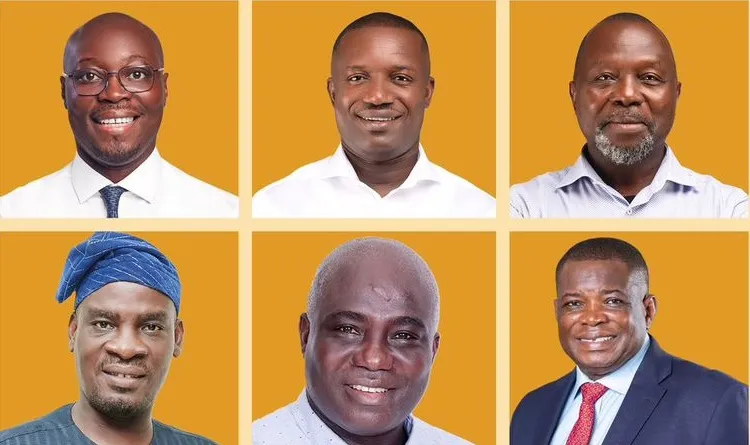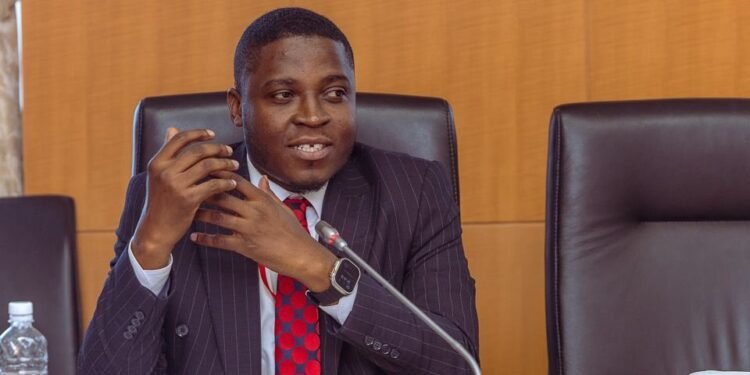In a decisive move to bolster accountability within the corridors of power, Attorney General Dr. Dominic Ayine has reaffirmed his unwavering stance on enforcing the Code of Conduct, recently introduced by President John Mahama.
At a time when public confidence in governance hinges on transparency and fairness, the Attorney General’s remarks send a clear message: political protection will not shield misbehaving appointees.
Speaking in reaction to the new code, Dr. Ayine made it known that the law will apply to all—without fear or favor.
“I have said it several times… I will not hesitate to investigate and prosecute anybody who is an appointee of this government who crosses the line.”
Dr. Dominic Ayine
His statement underscores a growing emphasis on equal application of justice, regardless of political affiliation or current office.
Dr. Dominic Ayine emphasized that the Code of Conduct for public officials is far more than a symbolic declaration—it carries real legal weight.
He explained that its provisions are enforceable under existing laws, meaning violations can lead to serious consequences, indicating that breaches that amount to criminal conduct can be prosecuted in a court of law.
He noted that once an appointee’s contract is terminated due to misconduct, the legal system must be able to pursue the matter further, ensuring that those found guilty are held accountable through appropriate criminal penalties.

At the heart of the Attorney General’s position is a commitment to parity. Selective justice, he warned, breeds disillusionment.
“…It doesn’t make sense, for purposes of the public’s sense of fairness, that past appointees will be prosecuted and then present appointees will go scot-free. That means that you are leaving room for them to be prosecuted in the future. You are just simply deferring their prosecution, and it doesn’t make sense.”
Dr. Dominic Ayine
This sentiment, though stark, addresses a long-standing perception in Ghanaian politics—that justice often arrives late or not at all for those currently in power. By vowing not to spare current officials if they err, Dr. Ayine is making a bold departure from the norm.
His approach aligns with the broader aspirations of the Executive Code of Conduct, which aims to guide public officers toward ethical behavior while holding them to account when they falter.
Code of Conduct Extends Beyond Dismissal
Dr. Dominic Ayine further emphasized that the dismissal of a public official should not mark the end of accountability.
He asserted that if any criminal wrongdoing is uncovered after an individual has been removed from office, the legal system must take the necessary steps to investigate and prosecute.

Simply terminating an appointment, he argued, does not absolve the individual from facing justice. The President’s stance, he noted, is a clear warning that crossing ethical or legal boundaries must have consequences beyond administrative action.
“I will also say that I don’t want to have the unpleasant duty of having to investigate my own colleagues or appointees in government. So we should all stay in line, the straight and narrow path that has been defined by the President.”
Dr. Dominic Ayine
He observed that hesitation to act should never justify inaction. On the contrary, it highlights a deeper moral responsibility for government appointees to hold themselves accountable before formal mechanisms intervene.
His remarks imply that the culture within the administration must evolve from merely reacting to misconduct toward cultivating ethical behavior from the outset.
The Code of Conduct, therefore, is taking shape as more than just a written directive—it is becoming a dynamic tool for discipline and institutional reform.

With President Mahama emphasizing its legal enforceability and the Attorney General indicating readiness to prosecute violations, the code has the potential to influence ethical standards and accountability across all tiers of leadership.
In an era where citizens are increasingly vocal about the need for integrity in public service, this move signals responsiveness to those demands.
However, it also raises the stakes for public officials, who must now walk a tighter rope in how they manage their offices, resources, and responsibilities.
Whether the code will live up to its promises will ultimately depend on consistent enforcement. But with Dr. Ayine’s words ringing in the air, one thing is clear: the days of selective accountability may be numbered.
READ ALSO: Rex Omar Defends ‘Detty December’ Amid Speaker Bagbin’s Criticism



















